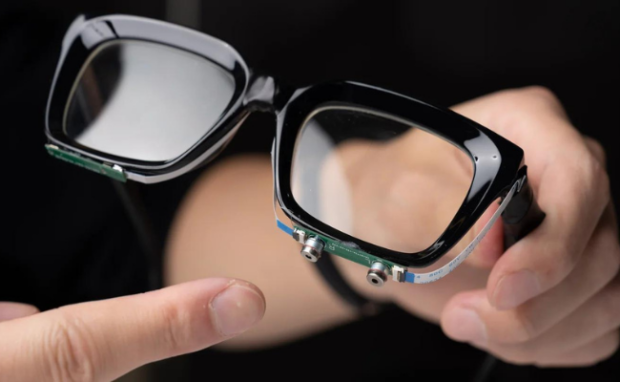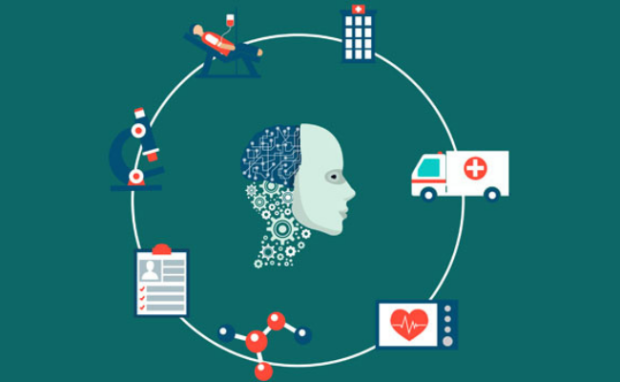The Future of Speech Assistance: AI Glasses for the Speech-Impaired
Are you or someone you know facing challenges with speech impairment? Have you ever wondered if there is a technology that can assist them? Look no further than the groundbreaking invention by a Cornell University student – AI-powered glasses for the speech-impaired.
This artificial intelligence tool uses advanced technology to read lip movements. Then, it turns them into commands and voices on their behalf. This innovation could revolutionize how people with speech difficulties communicate, making their lives more manageable and convenient.
In this post, we will explore the future of speech assistance with the help of AI glasses. We will delve into the working and potential of this incredible technology, its impact on the lives of the speech-impaired, and how it can open up new possibilities for them. Later, I will also cover other ways artificial intelligence is improving healthcare.
How do the AI glasses work?

Photo Credit: popsci.com
A doctoral student at Cornell University, Ruidong Zhang, created a pair of eyeglasses that help people with speech impediments speak again. He calls the device the EchoSpeech.
The current version of EchoSpeech enables users to communicate with others via smartphone. It uses an AI-powered sonar system to read the user’s lips.
Sonar involves sending sound waves to bounce them against surrounding objects. Then, the transmitter receives the returning sound to map the environment.
It’s similar to how bats navigate in pitch darkness despite having poor eyesight. Zhang’s AI glasses use sonar to determine a user’s mouth shapes and movements as they speak.
The device matches those sound waves with a Smart Computer Interfaces for Future Interactions (SciFi) Lab algorithm. This artificial intelligence analyzes echo profiles with 95% accuracy.
The EchoSpeech sets itself apart from similar gadgets due to this sonar method. It provides more accurate speech recognition, making them more useful.
Also, these AI glasses look inconspicuous due to their tiny microphones and speakers. As a result, the EchoSpeech is more practical for daily use.
You may also like: Healthcare Experts Use TikTok To Share Helpful Advice
The current version lets people communicate by projecting their words on a smartphone. As a result, they may speak in inconvenient environments, like a noisy street or quiet library.
Users may pair the AI glasses with a stylus or design software like CAD. Zhang detailed his artificial intelligence project in the paper “EchoSpeech: Continuous Silent Speech Recognition on Minimally-obtrusive Eyewear Powered by Acoustic Sensing.”
He said, “For people who cannot vocalize sound, this silent speech technology could be an excellent input for a voice synthesizer. It could give patients their voices back.” Also, Cheng Zhang, assistant professor of information science, said it pushes the boundaries of performance and privacy.
Other AI healthcare technologies

Photo Credit: contactcenterworld.com
The Cornel University project is not the only pair of AI glasses in development. For example, Stanford student Bryan Hau-Ping Chiang created ChatGPT eyewear.
It merges GPT-4, OpenAI’s latest large language model, with AI voice recognition programs like Whisper and Monocle AI glasses. Moreover, it uses a proprietary algorithm he dubbed rizzGPT.
He described it as a “real-time Charisma as a Service (CaaS).” The AI glasses detect what another person says to suggest responses by projecting them on the lenses.
As a result, people can ensure they say the right things during a date or job interview. Moreover, the rizzGPT eyewear can analyze a menu you are looking at to recommend meals.
You may also like: Facebook Is Working On A Smartwatch
Unfortunately, the AI glasses from Cornell seem more practical than the ones from Stanford. The latter has a huge Monocle AI lens, which can make conversations awkward before it can guide conversations.
Apple may also expand AI-assisted healthcare globally with its upcoming health tracking features. A Bloomberg report said the company is developing a project called Quartz.
The program will allegedly create personalized wellness plans using artificial intelligence and user data. However, the company has not confirmed the project at the time of writing.
Conclusion
In conclusion, the development of AI glasses by Cornell University to help people with speech impairments proves the transformative power of technology. This device can potentially change the lives of millions of people with speech difficulties.
It will enable them to communicate more easily and effectively. As artificial intelligence continues to revolutionize our world, we must take time to understand how it works and how it can be harnessed for positive change.
By following Inquirer Tech, you can stay up-to-date with the latest digital tips and trends and be at the forefront of the AI revolution. Let us embrace technology and use it to create a better world.